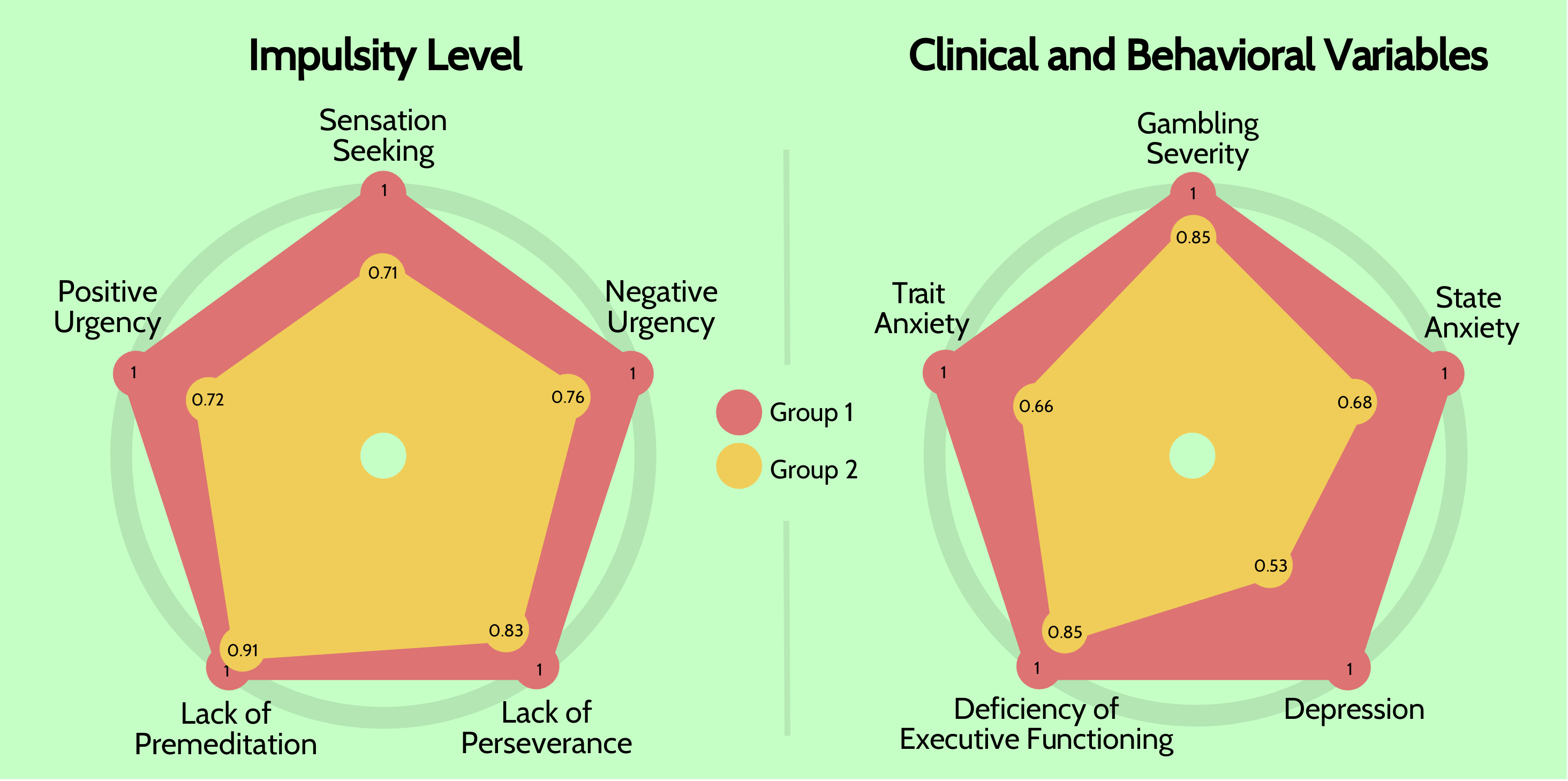People who often act impulsively are at risk for many addictions, including gambling disorder. While a relationship between rash behavior and gambling issues may seem intuitive, impulsivity is a complex personality trait that varies in prominence among people with gambling disorder. Those who are especially impulsive have trouble staying in treatment and might differ from people who are less impulsive in important ways. This week, the WAGER reviews a study by Núria Aragay and colleagues that explored impulsivity in problem gamblers, with a focus on people who compulsively play slot machines.
What was the research question?
How does impulsivity vary among people with slot machine gambling disorder?
What did the researchers do?
The researchers recruited 126 participants being treated for gambling disorder at a Spanish outpatient clinic. In order to limit game preference as a confound, they included only people reporting problems with slot machines and no other behavioral addictions. Participants self-reported their impulsivity levels with the UPPS-P Impulsive Behavior Scale, a measure with five subscales. Participants also answered questions about their past-year gambling severity, symptoms of depression and anxiety, substance use, and executive functioning. Aragay and colleagues then separated participants into groups by impulsivity level, and used t-tests and chi squared tests to compare them.
What did they find?
Cluster analysis revealed two groups of participants: Group 1 (68% of the sample) reported significantly higher impulsivity than Group 2 (32% of the sample). Group 1 also reported significantly higher scores of gambling severity, depression, anxiety, and psychiatric comorbidity, and lower scores of executive functioning (see figure). The researchers found no significant differences in gender, education, or employment status between groups, but Group 1 was around five years younger on average than Group 2.
 Figure. Radar charts comparing the mean scores of Group 2 to Group 1 on the UPPS-P impulsivity scale (left) and clinical/behavioral scales (right). All Group 1 averages have been adjusted to a value of 1, and Group 2 averages are shown as proportions of Group 1 scores. A higher Group 2 value represents a closer performance to Group 1 on that test. Click image to enlarge.
Figure. Radar charts comparing the mean scores of Group 2 to Group 1 on the UPPS-P impulsivity scale (left) and clinical/behavioral scales (right). All Group 1 averages have been adjusted to a value of 1, and Group 2 averages are shown as proportions of Group 1 scores. A higher Group 2 value represents a closer performance to Group 1 on that test. Click image to enlarge.
Why do these findings matter?
These results suggest a divide in impulsivity among slot machine players with gambling disorder. This split could be explained by the Pathways Model, which proposes three subgroups of problem gamblers based on personality characteristics and motivations for gambling. Though more research is necessary to determine the different pathways to gambling disorder, these insights can help in developing specialized treatment methods. For example, an effective treatment for Group 1 might focus more on comorbidity, reasons for impulsiveness, and ways to keep them in treatment.
Every study has limitations. What are the limitations in this study?
Since the sample was 90% male and entirely slot machine players, results do not necessarily apply to women with gambling disorder, or to those who partake in other forms of gambling. The researchers used just one measure of impulsivity, and additional tests such as the Iowa Gambling Task could have provided a more accurate reading.
For more information:
If you think that you or someone you know might have a gambling problem, visit the National Council on Problem Gambling for screening tools and resources. For additional resources, visit our addiction resources page.
— Jamie Juviler
What do you think? Please use the comment link below to provide feedback on this article.




